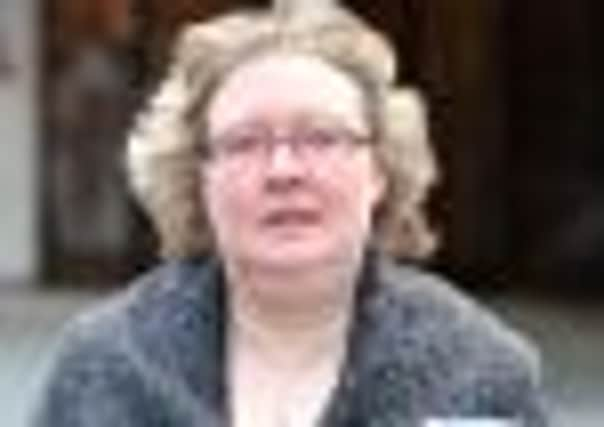Police worker ‘let mother die’ in Guiseley slum, court hears


Eileen Pearson, 82, was “dirty and severely emaciated” when her dead body was taken to Leeds General Infirmary by her daughter Angela, Preston Crown Court, sitting at the Sessions House, was told.
West Yorkshire Police employee Pearson, 53, of Ghyll Royd, Guiseley, near Leeds, denies manslaughter by gross negligence.
Advertisement
Hide AdAdvertisement
Hide AdRachel Smith, prosecuting, told the jury of seven women and five men that Pearson failed to provide adequate food, nourishment and care to her mother and failed to summon timely medical help.
She added: “Eileen Pearson’s death was preventable, but had been caused by the failure of this defendant, her sole carer, to take proper care of her.”
Unmarried Pearson, a Prosecution Team Officer at West Yorkshire Police’s Leeds Criminal Justice Support Unit, took her dead mother to the hospital’s A&E department shortly after 10.30pm on May 10 last year.
She told medical staff her mother, who weighed just 5st 7lb, was “unresponsive” but they immediately recognised she was dead, Miss Smith said.
Advertisement
Hide AdAdvertisement
Hide AdMiss Smith said: “Mrs Pearson was dirty and severely emaciated and had died as a result of the combined effect of malnutrition, Parkinson’s Disease and infected pressure sores.”
Police were alerted and visited Mrs Pearson’s home in Fairway, Guiseley, where her daughter was also living at the time, and found that the house was “uninhabitable”, Miss Smith said.
She told the jury: “There was no running water or sanitation. The building itself was in a dangerous condition.
“The rooms were piled high with a mixture of discarded possessions, soiled clothes, soiled nappies, food waste, bottles filed with urine, human waste and decaying rubbish.
Advertisement
Hide AdAdvertisement
Hide Ad“There were insect infestations and dead rats in the property.”
Mr and Mrs Pearson were described as financially secure with “significant assets”.
But Miss Smith said they had “certain unusual personality traits” and added: “In later life it appears they allowed the house to deteriorate, even though they had the money to have kept it in good repair.”
The couple were described to police as hoarders by Pearson, their only child.
Advertisement
Hide AdAdvertisement
Hide AdMiss Smith told the jury a prosecution expert will be called to say it was likely Mrs Pearson suffered senile squalor syndrome.
She said it was an “unusual condition” which affects some, usually elderly, people.
“The main features of the syndrome are social isolation, self-neglect, rubbish hoarding, extreme squalor and indifference to their surroundings,” Miss Smith said.
“However, it does not explain why the defendant failed to take proper care of her mother, who was increasingly frail and vulnerable.
Advertisement
Hide AdAdvertisement
Hide Ad“The defendant was the only person who knew that Mrs Pearson had been suffering from pressure sores which had developed into significant wounds and that she was lying on a bed formed from a single mattress and built up with discarded possessions, covered with a shower curtain and a towel and a fleece blanket.
“The defendant alone knew that her mother had stopped eating anything other than a few mouthfuls of food at a time and that she rarely drank more than a few sips of tea or juice or a slimming drink each day.”
Pearson was described to the jury by Miss Smith as “professional, diligent, articulate and capable”.
She had an interest in home crafts and attended a three-day course in Harrogate over the weekend before her mother died.
Advertisement
Hide AdAdvertisement
Hide AdThe jury was told a defence psychiatrist, disputed by the prosecution, will claim that the daughter has a condition called folie a deux.
The effect of the condition was to “reduce the defendant’s capacity to appreciate the risks to her mother’s health of the conditions she was living in”, Miss Smith said.
But the prosecution psychiatrist will say Pearson did have the capacity to understand her mother’s needs, but was “ashamed and embarrassed” by the condition of the house and the state her mother had got into.
In police interviews, the defendant said her mother had an aversion to doctors.
Advertisement
Hide AdAdvertisement
Hide AdShe died between 7.30pm and 7.45pm on the night she took the body into hospital, Pearson said in interview.
She told officers her mother took to her bed in early 2001, shortly after the death of her husband of 50 years, Geoffrey.
Pearson said that at the time her mother was physically capable of getting out of bed but but she preferred to spend her days in bed rather than elsewhere in the house.
In around 2008, Pearson told police, her mother was no longer capable of leaving the bed and by 2010 could not use cutlery to feed herself.
Advertisement
Hide AdAdvertisement
Hide AdThe defendant told police that in the same year she moved into her mother’s bedroom so she could “attend to her” throughout the night.
Addressing the jury, Andrew Stubbs QC, defending, said there was “no failure” in Pearson’s duty of care for her mother.
He said: “She was doing her best to treat her mother in accordance with her mother’s wishes.
“She didn’t want to see her doctor or go to hospital.
“This case centres on whether people can be compelled to seek medical treatment against their wishes.”
The trial, which is expected to last up to three weeks, was adjourned until today.